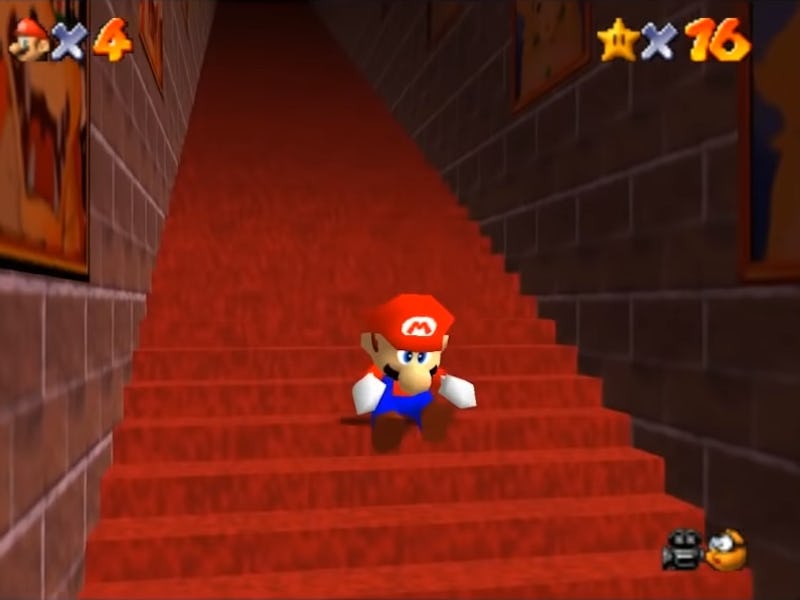Super Mario 3D All-Stars includes the wrong version of Super Mario 64
Mamma mia!

Super Mario 64 is one of the most influential games in history. The Super Mario 64 port that's part of the Super Mario 3D All-Stars bundle, however, fails to adapt it properly. And that's because rather than a version of the original, it is instead an alternate version known as the "Shindou Edition" which effectively nerfs attempts at speed-running — arguably the one thing that has kept this game relevant for many years.
Super Mario 3D All-Stars including this version of the game makes it seems like Nintendo assumes Super Mario 64 has maintained public relevance due to its quality. No, Super Mario 64 has remained relevant because speedrunners have kept it relevant. This port stops those efforts in their tracks, which effectively means that the most popular way to play Super Mario 64 is, in fact, not even possible on the Nintendo Switch.
Speedrunners are a type of elite game player that attempts to beat a game in the fastest possible time. Anyone engaging in this competitive exercise cannot use assistive technology like Game Genies, Action Replays, or anything beyond their own skill.
However, Speedrunners can utilize innate flaws in the game's code like glitches that catapult the player past numerous levels. Exploiting glitches is a core part of speedrunner culture, and there's always a hunt for new glitches to exploit.
Through a glitch utilizing a technique called Backwards Long Jump, players have been able to finish Super Mario 64 at superhuman speeds. When enjoyed by your average player, Super Mario 64 is estimated to take 13 hours to beat. The current world record holder, however, finished the game in just six and a half minutes.
Backward Long Jumps work due to an error in the code. In the original version, Nintendo placed a cap on Mario's forward momentum, which stops him from going too fast for the game to handle. But developers failed to place that same cap on his backward momentum.
By using successive backward jumps, speedrunners were able to force Mario to jump at unreasonably high speeds, pushing the character through nearby walls. This glitch is one of the biggest time skips available to speedrunners, allowing Mario to reach endgame stages far earlier than he's supposed to. It's impossible to use this glitch in the Shindou Edition, the update to Super Mario 64 available in Super Mario 3D All-Stars.
The Shindou Edition is a Japan-only cartridge update to Super Mario 64 that first released in 1997. The Shindou Edition makes numerous alterations to the Super Mario 64 such as adding Rumble Pak support, improving text flow, and fixing numerous glitches such as the Backward Long Jump.
Due to the numerous fixes included, the Shindou Edition naturally became Nintendo's go-to Super Mario 64 port. It's what they've used for previous ports like the 2004 Nintendo DS release, 2006 Wii Virtual Console version, and the 2015 Wii U Virtual Console re-release. Despite its ubiquity on Nintendo's end, releasing the Shindou Edition again shows ignorance on Nintendo's end as to why Super Mario 64 remains in the cultural zeitgeist. Speedrunners are the reason Super Mario 64 remained relevant.
This essentially proves that Nintendo either doesn't know or doesn't care about this important aspect of gamer culture. A far better alternative would be to include both versions of the game and to let gamers choose which they want to experience. Plenty of old games are littered with bugs, and experiencing them all over again is part of the nostalgic fun factor.
Backward Long Jump
The superhuman achievements of speedrunners have constantly drawn eyes from players of all ages. If you search Super Mario 64 on YouTube, nearly every top-viewed video is a Super Mario 64 speedrun. The most popular of these speedruns has over 35 million views.
Some credit Super Mario 64 as a huge contributor to Twitch's massive take off as a streaming platform, mainly because watching top-tier Mario players was popular before live-streaming attained widespread popularity.
Super Mario 64 speedruns ensured the game was spoken about regularly, and with curiosity. The online discussion of speedrunning hasn't died down. Each article keeps Super Mario 64 in the discussion a little bit longer. Super Mario 64's contemporaries don't receive this same flow of regular discussion. Pokémon Gold and Silver and Star Fox 64 aren't discussed as frequently as Super Mario 64, and that's because there's no equivalent.
Including the original, glitch-filled Super Mario 64 is how Nintendo can actively preserve the game's legacy. Each release that passes means that slowly but surely the copies of Super Mario 64 that can be speedrun are deteriorating. This is particularly important as many speedrunners continue to show a preference for using a physical Nintendo 64, rather than emulating the same game.
If Nintendo can port the original properly, with all its glorious bugs, we can finally have a port that not only remembers what Super Mario 64 was when it released, but what it's become years later.
Read also: 1 glaring Super Mario 3D All-Stars change destroys the Sunshine experience.